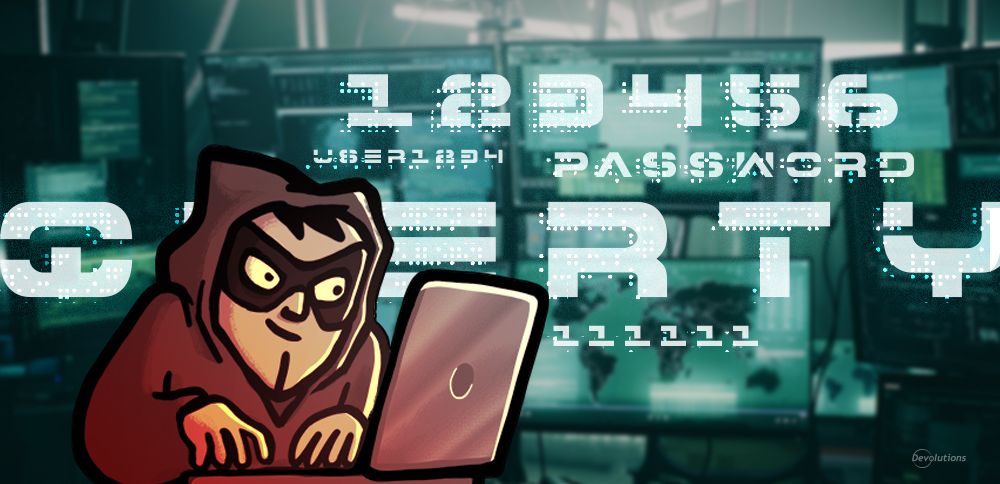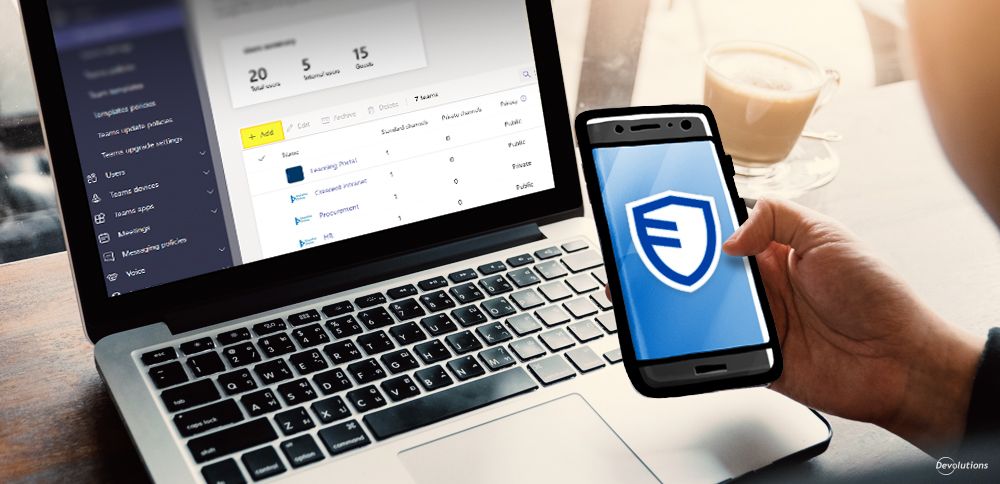This should delight all of the wordsmiths and Jeopardy! fans out there: the word “hack” dates back to the 12th century, and derives from the Old English word “tohaccian”, which means “to hack to pieces”.
Riveting, huh? OK…maybe not. But these days, there is another usage of the word “hack” that is very captivating and attention-grabbing, but not in a positive way: when hackers break into networks, endpoints and devices to steal data.
Really, it seems impossible to go a day — or make that an hour — without learning of yet another hacking campaign. And we also know that it could happen to us at any time. In fact, it could be happening to you RIGHT NOW.
The Weakest Link…
As an IT pro, you know all about the signs of being hacked. But you also know that end users are (and always will be) the weakest link in the security defense chain. Of course this isn’t on purpose. But that’s is beside the point. A hack is a hack.
And so, to help you tighten up the defenses in your organization, here’s an article that you can share with your team so they can detect when they’ve been hacked vs. ignore the symptoms and make things even worse for them — and for you!
1. People Receive Messages You Didn’t Send
It’s nice when family members, friends, or anyone in your personal or professional network confirms receipt of the email or social media message that you sent. But it’s a BIG PROBLEM when you didn’t send anything!
The first thing to do is check your sent folders and make sure you didn’t send it (hey, we all send emails at 3am that we forget about!). If you don’t see the sent message in question, then sorry to say that you’ve probably been hacked.
2. Your Password Doesn’t Work Anymore
You’re sure you’ve entered your trusty password correctly but you can’t access your account? Don’t panic. Take a deep breath and try again…if you continue to be locked out – well your account may have been compromised.
It’s possible that you have fallen victim to a phishing scheme and that someone else has changed your password. You’re first reaction should be to follow your account recovery links and change your password, but be aware that your account could still be compromised. Try using a two-factor authentication to add an extra layer of protection to your account and improve your password security.
3. Unusual Computer Activity
Have you noticed unusual changes to your computer’s configuration? For example, have your settings been altered? Has your keyboard language abruptly changed? Or perhaps your search engine suddenly changed on its own? This could all be the work of an illicit app lurking in the background.
4. Increased Network Activity
If your monthly bandwidth consumption dramatically increases — and yet you haven’t been binging on Netflix or Fortnite — or if your hard drive starts sounding like a hovercraft, then hackers may have compromised your system. A malicious malware looking for data to steal or an attacker trying to remotely connect to your computer could dramatically increase your monthly bandwidth consumption.
5. Phony Antivirus Messages
"Warning—your computer is infected! System detected virus activities. They may cause critical system failure. Click here to get available software."
Have you seen this message (or a message like this)? That, my friend, is called “scareware”! It is designed to trick you into downloading malware-laden software. Instead of adding a layer of protection, scareware opens the front door for hackers to march in and steal data.
Scareware can cause critical damage to your computer. Make sure you don’t click ANYTHING — not even the “X” at the top of the window. Some scareware is designed to activate if you do that. Instead, use your Task Manager or Force Quit to close your web browser.
6. Wi-Fi Keeps Disconnecting
There are many legitimate reasons why your Wi-Fi might be disconnecting, such as an unstable Internet connection, a problem with your network card, your router needs a good ol’ fashioned reset, and so on. But, it could also mean that you’ve been hacked, or that a spyware app is at work. I recommend switching to WPA encryption to boost your security.
7. System S-L-O-W-S down
Have you started noticing a lag when visiting different websites? Is your software getting slower, or freezes/crashes intermittently? All of these might be red flags that your computer is infected or is being hacked, as processing power is being allocated elsewhere.
Now, with this in mind, we’re not saying that if your Netflix suddenly starts buffering then you should sound the alarm bell. But as the old saying goes, where there is smoke, there is usually fire.
8. Mystery Toolbars
Is there a new toolbar that suddenly appeared in your web browser? That’s a sign malware has sneaked onto your system, or is trying to get in.
You see, toolbars are like friend requests on Facebook – if you don’t know them, don’t accept them! So, unless you know the toolbar and it’s coming from a well-known vendor (e.g. Google), then it’s probably time to clean up your web browser and get rid of everything that shouldn’t be there. To be on the safe side, always avoid installing toolbars coming from unknown software.
9. Redirected Online Searches
Have you noticed any strange search results? Hackers will sometimes use a computer virus to try and redirect your search to another website in an effort to grab traffic. So if you start noticing weird search results it might be the work of hacker!
10. Mouse Moves on Its Own
That’s probably the one that would freak me out the most…your mouse moving without you even touching it, that’s just straight out creepy! Believe me, if your mouse starts moving across your screen and switching between programs, it’s definitely part of a malicious attack. This means that the hacker now has global control of your computer and that is the holy grail of hacking. Fortunately, these attacks are more rarely seen but they are deadly serious. Suggestion? Disconnect immediately from the web and restart your computer before it’s too late.
Your Turn
As an IT pro, what are some other tell-tale signs of a hack? And what are some of the lesser-known indications that you know about, or perhaps have experienced? Please comment below. Together, we can work together to try and stay a step or two ahead of the bad guys!




